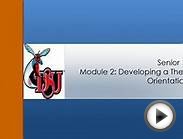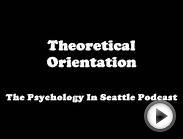
Summary
Mental health counselors and marriage and family therapists help people manage or overcome mental and emotional disorders and problems with their family and relationships.
Mental health counselors and marriage and family therapists help people manage and overcome mental and emotional disorders and problems with their family and relationships. They listen to clients and ask questions, to help the clients understand their problems and develop strategies to improve their lives.
Mental health counselors and marriage and family therapists work in a variety of settings, such as private practice and mental health centers. Most work full time.
Mental health counselors and marriage and family therapists typically are required to have a master’s degree and a license to practice.
In May 2012, the median annual wage for mental health counselors was $40, 080. The median annual wage for marriage and family therapists was $46, 670 in May 2012.
Employment of mental health counselors and marriage and family therapists is projected to grow 29 percent from 2012 to 2022, much faster than the average for all occupations. Growth is expected in both occupations as more people have mental health counseling services covered by their insurance policies.
 Compare the job duties, education, job growth, and pay of mental health counselors and marriage and family therapists with similar occupations.
Compare the job duties, education, job growth, and pay of mental health counselors and marriage and family therapists with similar occupations.
Learn more about mental health counselors and marriage and family therapists by visiting additional resources, including O*NET, a source on key characteristics of workers and occupations.
Mental health counselors and marriage and family therapists encourage clients to discuss their emotions and experiences.
Duties
Mental health counselors and marriage and family therapists typically do the following:
- Diagnose and treat mental and emotional disorders, such as anxiety and depression
- Encourage clients to discuss their emotions and experiences
- Help clients process their reactions and adjust to changes in their life, such as divorce and layoffs
- Guide clients through the process of making decisions about their future
- Help clients develop strategies and skills to change their behavior and to cope with difficult situations
- Coordinate treatment with other professionals, such as psychiatrists and social workers
- Refer clients to other resources or services in the community, such as support groups or inpatient treatment facilities
Mental health counselors and marriage and family therapists use a variety of techniques and tools to help their clients. Many apply cognitive behavioral therapy, a goal-oriented approach that helps clients understand harmful thoughts, feelings, and beliefs and replace them with positive, life-enhancing ones. Furthermore, cognitive behavioral therapy teaches clients to eliminate unwanted and damaging behaviors and to replace them with more productive ones.


Source: www.bls.gov

|
Heart Belongs Occupational Therapist Professions Careers Long Sleeve T-Shirt Tee Blue S Apparel ()
|
You might also like:

















 A Bachelor of Science (Bc., B.S., BS, B.Sc. or BSc; less commonly, S.B., SB, or Sc.B. from the Latin Scientiæ Baccalaureus) is an undergraduate academic degree awarded for completed courses that generally last three to five years (see below).
A Bachelor of Science (Bc., B.S., BS, B.Sc. or BSc; less commonly, S.B., SB, or Sc.B. from the Latin Scientiæ Baccalaureus) is an undergraduate academic degree awarded for completed courses that generally last three to five years (see below). Psychology is the study of the mind, occurring partly via the study of behavior. Grounded in scientific method, psychology has the immediate goal of understanding individuals and groups by both establishing general principles and researching specific cases, and for...
Psychology is the study of the mind, occurring partly via the study of behavior. Grounded in scientific method, psychology has the immediate goal of understanding individuals and groups by both establishing general principles and researching specific cases, and for...
its when you're stopped up and a laxative doesn't seem to work
Theoretical Orientation is the way a person is going to about conducting therapy. !